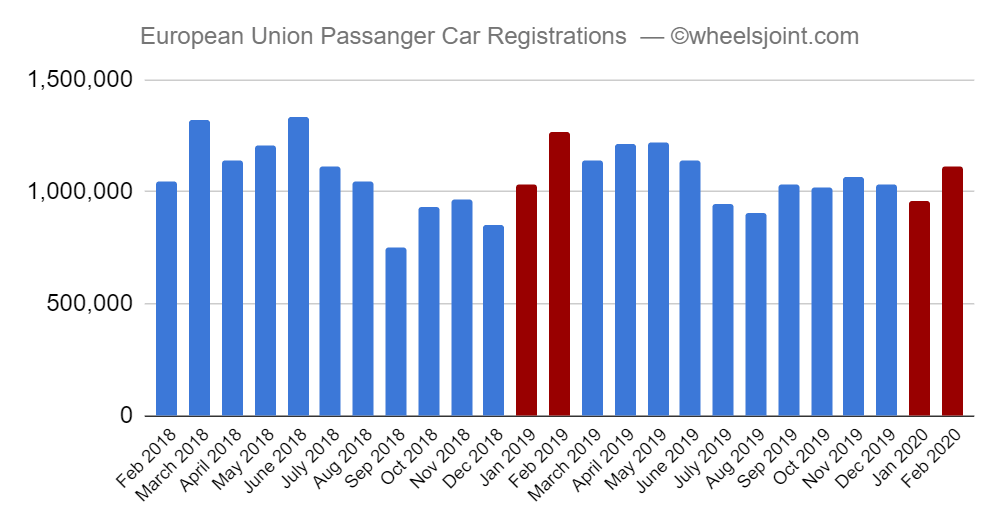The coronavirus is slowing the world economy. The consequences and effects of this disease are already being noticed in the markets, in industry, in commerce, in tourism, etc.

The automobile sector is no exception, but how is the coronavirus affecting you? We have made an x-ray of the situation by compiling reports from: manufacturers, brands, dealers, event organizers, political leaders… These are the dire consequences of the coronavirus for the automotive sector.
Let’s start with the main thing: car manufacturing. It is evident that this vertical of the sector was going to retreat in the wake of the coronavirus crisis. The reason is simple: China is the world’s leading manufacturer.The forecasts indicate that if the crisis does not avert soon, the consequences in Europe will not be great because the production of the Chinese factories is destined, above all, for internal consumption.

Volkswagen revealed that the production of its two models, the Polo and the T-Cross , is at risk since they only had parts to continue with the production for three to six more days. The reason is not found, in this case, in China. The problem comes from northern Italy.
Seat, meanwhile, keeps up with Martorell’s production, but the coronavirus could begin to take effect in early April due to the lack of supplies from China. Within a couple of weeks, the company’s management will already know for sure what steps it should take in the face of this foreseeable lack of supplies.
Factories that produce components for cars have also suffered. Antolin and Gestamp, which have plants in China, may suffer some delays when serving orders. On the other hand, the factory that Denso and Fujitsu have in Malaga and that supplies the factories that Toyota has in France, the United Kingdom and Russia, has had to stop some of its lines.
In terms of car sales, the registrations continue to fall and taking into account the general market weakness showed in 2019, it is certain that the coronavirus could not have come at a worse time.
Moody’s had predicted that global registrations in 2020 would drop 0.9%. But after the appearance of this epidemic, they have changed the figures and believes that this decrease will be 2.5%. The global figures for January validate this prediction. GlobalData (leading data and analysis company) revealed that in January the figures fell 13.9% compared to the same month in 2019. About 6.2 million cars were sold, the lowest figure since January 2012 (5.9 million).

If we focus on Europe, enrollment in January dropped 5.8% compared to the same month last year. A percentage that translated into units represents 1.44 million vehicles. The European Automobile Industry Association, meanwhile, announced that, in January, sales fell 7.4% in both the 27 EU countries and the United Kingdom, Switzerland, Norway and Iceland.
The effects of coronavirus, therefore, are visible although the truth is that in the long term they are difficult to quantify. Of course, everything indicates that sales will continue to decline during the rest of 2020, even if it is possible to contain the spread of Covid-19.
Although it seems that the coronavirus is only having negative consequences in the automotive world, the truth is that we have found something positive: the price of fuel has fallen again in recent days, according to data from the European Union Oil Bulletin. There is no doubt that Covid-19 is slowing oil demand.

The cost of gasoline and diesel has been falling due to the coronavirus since China is the world’s leading importer of crude oil. The latest official figures highlight that, this week, the average price of gasoline is 1.293 euros per liter, which represents a decrease of 0.54%. This is its minimum since the beginning of last April. The diesel is 1.19 euros per liter, 1% less. In this case, it has reached its lowest level since February 2019.
Of course, it is not known how long this price drop will last because OPEC wants to cut the production of one and a half million barrels per day due to the impact of the coronavirus. To carry out this measure, they will have to convince Russia, which, so far, has denied.









